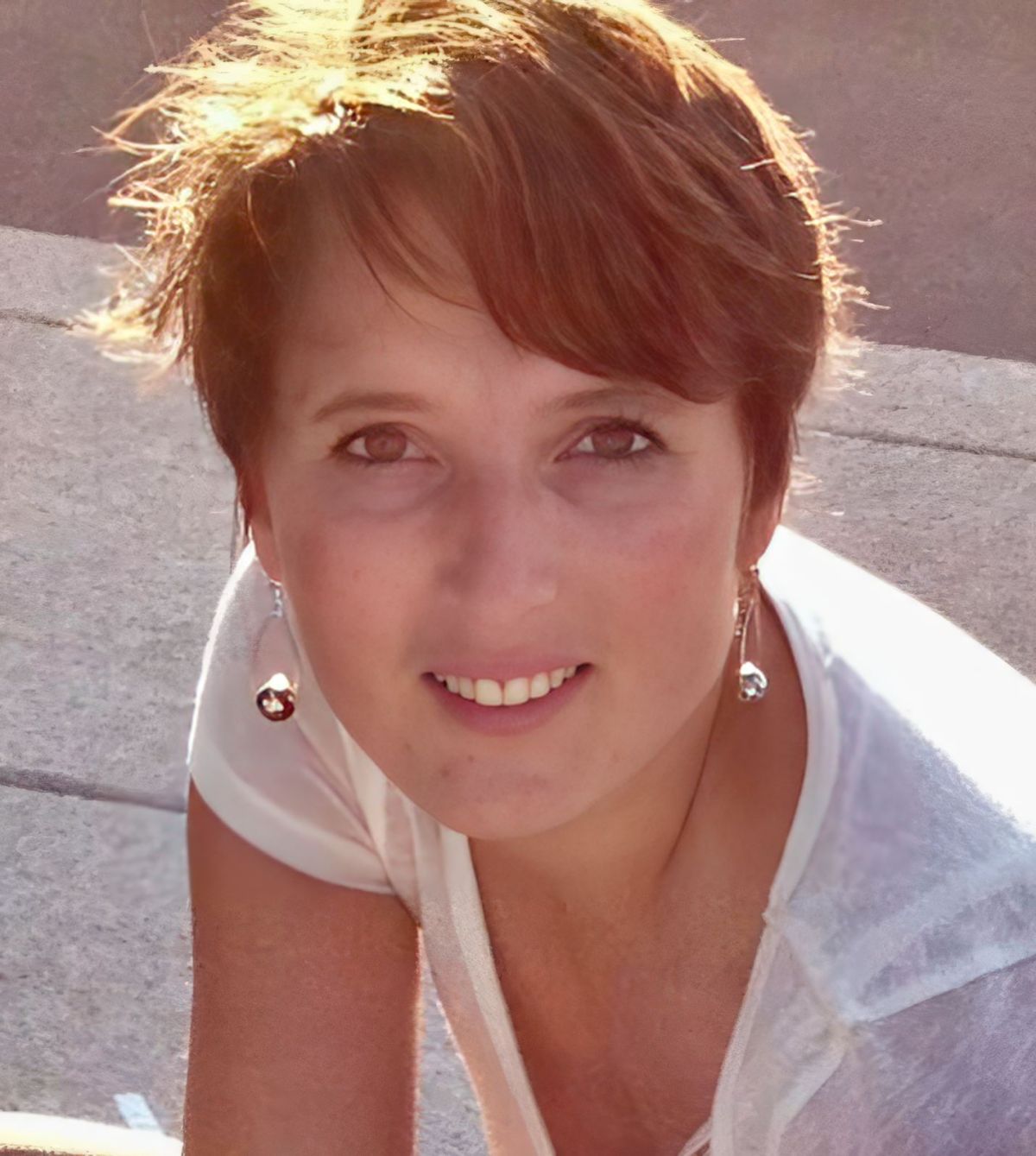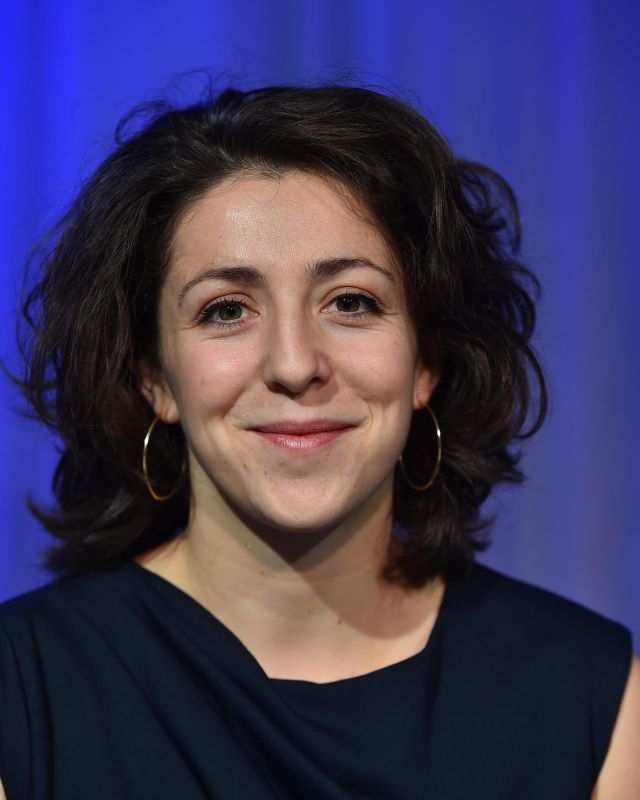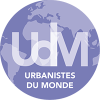Portrait

Céline Terrier-Laurens - GTU 2005 - Olympic and Paralympic Project - Paris 2024: Environmental, Planning and Greater Paris Coordinator at the General Secretariat of the City of Paris
Published on | Alumni Portraits
Céline is a true enthusiast of urbanism, planning, and architecture. Always oscillating between the strategic and the operational, and having worked at various scales, she has been one of the key players in the construction of the Grand Paris since its inception. In Situ had the pleasure of meeting this charming alumna at the Hôtel de Ville and reflecting with her on her professional journey.
Berlin: its path towards urban themes
After spending her childhood in St Quentin en Yvelines and completing her baccalaureate, Céline enrolled at Sciences Po Paris, aiming to become a journalist. Her ambition shifted during her third year at Humboldt University, as the scars of history are particularly significant in Berlin, leading her to focus on the role of memory in urban space. She then discovered territorial issues through the lenses of history and sociology. Before starting her master's, she decided to complete a three-month internship at DATAR, where she worked on the national land development fund. She found herself more interested in urban matters than the rural issues, which were predominant at DATAR.
From transport issues to urban planning
Attracted by the operational skills she could gain, she chose to join one of the first cohorts of the "City" major, a precursor of the Master's in Territorial and Urban Strategies, which then had only about twenty students. As part of her collective project, she entered a competition held by SNCF to propose innovations in train stations and focused on the southern tramway project of the maréchaux. This experience later allowed her to undertake a summer internship at the Region, where she would deepen her understanding of the Local Transport Plan.
For her final internship, Céline wanted to work in a SEM (Société d’économie Mixte), even though the scientific background was not then well recognised there. Through persistence, she secured an internship at SEMAPA (Société d'Economie Mixte d'Aménagement de Paris). As a recent graduate, she aimed to continue working in operational urbanism and was hired by SEMADS (Société d’Economie Mixte de l’Arc de Seine), in a part-time position for the City of Issy-les-Moulineaux. This very practical experience allowed her to explore the tangible aspects of urban planning, including attending construction meetings. She ultimately joined the city's urban planning department; a rewarding experience, especially due to the mayor's innovative approach. While some projects she worked on, such as the cable car between Issy Town Hall and Fort d’Issy or the Hypergreen tower by Jacques Ferrier, never came to fruition, she nonetheless acquired considerable technical and legal expertise, ranging from the modification of a PLU to the creation of a ZAC, alongside project management skills through establishing the city's "urban planning workshop."
The issue of status: master's degree, exams, and tenured positions
This experience at the town hall lasted two and a half years: Céline was then a contract worker in the public service. To change her status, she needed to pass the competitive exam to become a territorial engineer, which is often better recognised and compensated than territorial attachés. However, this exam is reserved for graduates in “scientific and technical” fields, even though the tests—synthesis note and oral—were entirely aligned with what she had studied at Sciences Po. Therefore, Céline enrolled in continuing education at the Institut d’Urbanisme Parisien in Créteil, self-funding her Master's in Project Management and Urban Projects. By attending classes on Fridays and Saturdays for a year, she obtained the certification allowing her to sit for the territorial engineer's exam, which she passed with flying colours (notably, since then, the conditions to sit for the territorial engineer's exam have been further tightened, and this IUP degree no longer qualifies candidates to take the exam).
Subsequently, she was able to be tenured in her position at the Île-de-France Region, where she had already worked for a year as a contract worker. She was appointed as the "Grand Paris" project leader for the Île-de-France Region, a new position as "Grand Paris" was not yet established. She worked on what was then referred to as the "dense zone" of the Paris agglomeration and contributed to discussions about its governance. Notably, she was involved in the working group of the Planchou Commission’s report, "Scenarios for the metropolis: Paris-Île-de-France tomorrow." She also had the opportunity to work on the international consultation "Le Grand Pari(s)", launched by Nicolas Sarkozy, and at the time of its inception, she was involved with the Atelier International du Grand Paris (AIGP) and the creation of Paris Métropole. She even traveled to Shanghai for the 2010 World Expo to present Paris-Île-de-France's sustainable city projects at the Paris pavilion.
From regional administration to the Paris City Hall's urban policy cabinet
In December 2012, she was approached by Bertrand Delanoë's cabinet, which offered her the position of advisor on "Grand Paris" matters. She accepted the proposal, which aligned with her political instincts and allowed her a strategic position close to decision-making. Amidst a tense situation between the Region and the City of Paris regarding the definition of the metropolitan perimeter, she "switched sides" by changing institutions.
The experience in the cabinet proved to be extremely enriching. She had the opportunity to work on the development of the MAPTAM and NOTRe laws, as well as on the complementary aspects of creating the "Grand Paris": defining its governance and territorial cooperation. This was manifest in concrete projects such as the gates of Paris and real estate sale agreements between Paris and other towns in the Île-de-France region.
A new adventure: Paris's bid for the Olympic and Paralympic Games
The end of Bertrand Delanoë's term marked the beginning of a transitional period. Céline joined the General Secretariat of the City of Paris and then became part of the mission created to champion the city’s candidacy for the 2024 Olympic and Paralympic Games. The team, comprising four individuals, acted as a liaison between the Mayor, city services, and the Paris2024 bid committee, a Public Interest Group (GIP) employing 50 staff. Céline was responsible for issues related to urban planning, the environment, and connections with other territories. The bid was an intense and stimulating project that united all city agents. It was also a monumental project, burdened with a budget of 60 million euros: 10M from the State, 10M from the Region, 10M from the city, and 30M from private partners. An undertaking that undoubtedly required substantial personal investment but also led Céline to Rio as an observer at the Paralympic Games, where she participated in the observer programme focused on the games' organisation and visited the logistical backstages of the venues.
Ultimately, beyond the sporting project, the candidacy also served as a catalyst for public policies, notably the 43 measures of the Support Plan for the Candidacy, which were to be implemented regardless of the final decision taken by the IOC in September 2017 (International Olympic Committee). Among these legacies left for Parisians are flagship projects like the opportunity to swim in the Villette basins as early as 2017, and in the Seine in the long term, as well as the redevelopment of the Porte de La Chapelle and the Saint-Denis canal through the agreement signed between the City, the Seine-Saint-Denis Departmental Council, and the 93 Territories.
Thus, for Céline, the candidacy for the Games represents a different way to continue building the Grand Paris through a concrete project.
Advice to students
Céline tends to advise students and recent graduates against starting with a cabinet experience. It is an exhilarating experience due to its closeness to power, but the fall can be difficult. She recommends gaining technical, legal, and concrete skills first, which will enhance contributions in the cabinet.
She wishes to encourage Sciences Po students to effectively showcase their transversal abilities, which are a rare and highly useful competency in any project management.
She suggests undertaking internships as early as the end of the third year, building a network, and seizing opportunities, even pushing on closed doors when necessary. Being tenacious will always be beneficial.
Finally, it is easier and more enjoyable to work with and for people who have convictions, a vision, and in whom one trusts. This often leads to more efficiency in achieving the common project.
François-Xavier Salmon - STU 2007 / INET 2010 - Technical Advisor to the General Director of Services of the Nord-Pas-de-Calais Regional Council
Published on 25 January 2017
During the trip to Lille in 2011, the students took part in a "speed networking" session in the morning. We found one of the portraits created! “It was…
Audrey Noeltner - GLM 2012 - Co-Founder and Project Manager of the NGO Womenability
Published on 20 December 2016
Among the first graduates of the Governing the Large Metropolis master’s programme at the Urban School, Audrey has experienced various professional journeys in…
 English
English  Français
Français 




